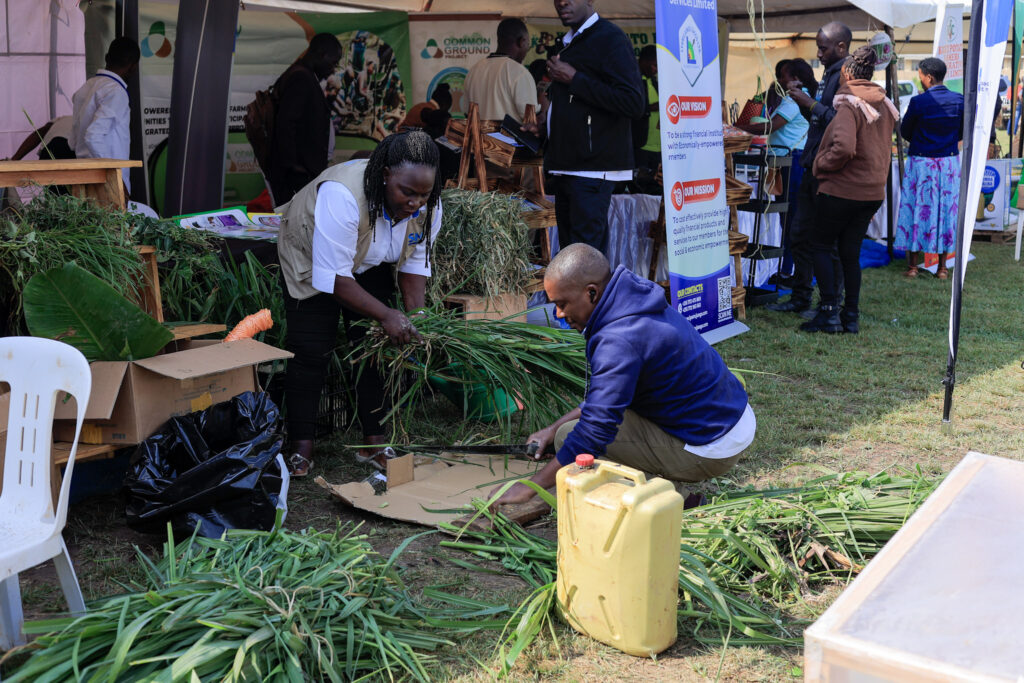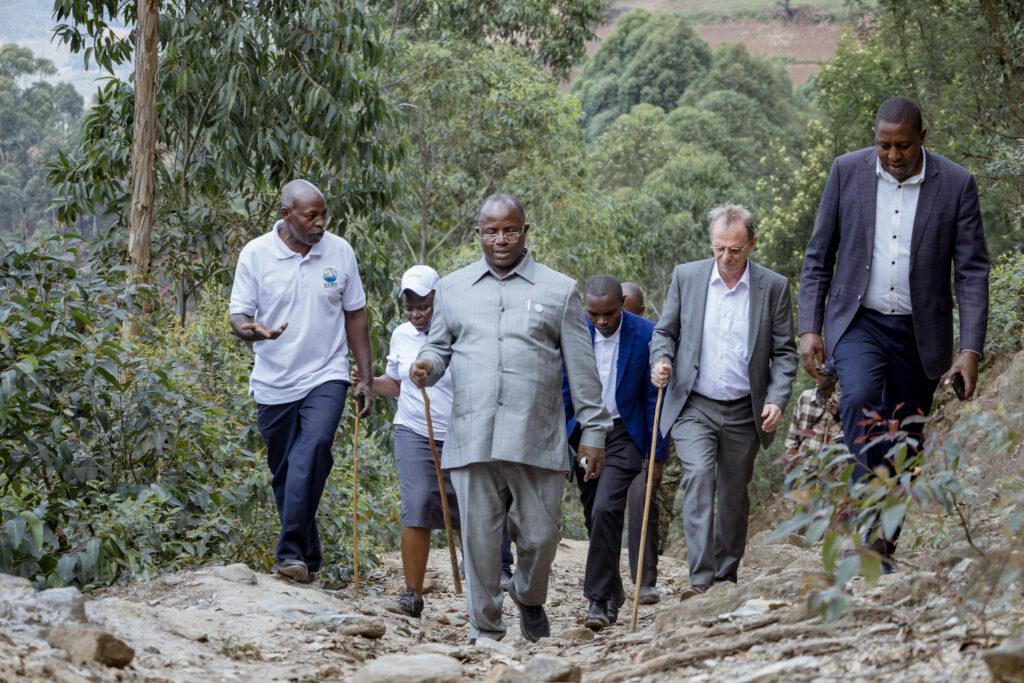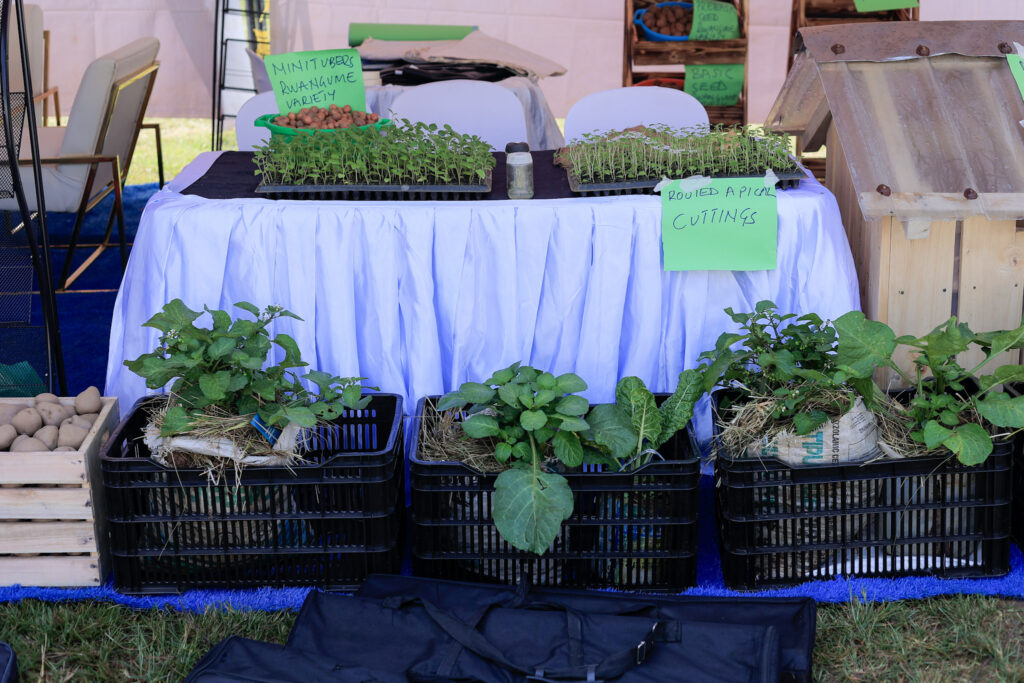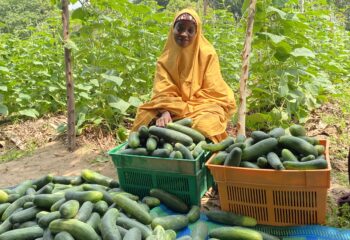
On September 11, the hills of Rubanda District’s Kiriba Village in Uganda came alive as more than 600 participants gathered for the Outreach, Learning, and Sensitization event hosted by IFDC and its Building Resilience and Inclusive Growth of Highland farming systems for rural Transformation (BRIGHT) project.
The event showcased a mix of speeches, panel discussions, exhibitions, consultations, and learning visits to landscapes restored through BRIGHT strategies. The project also demonstrated how communities are coming together to support vibrant local economies, highlighting everything from climate-smart innovations and strengthened linkages between farmers and the private sector to effective communal sustainable agricultural practices.
“Already, over 600,000 farming households are benefiting from this support.”
Hans Raadschilders, First Secretary of Food Security and Nutrition at the Embassy of the Kingdom of Netherlands in Uganda
Various participants including policymakers, development partners funded by the Embassy of the Kingdom of the Netherlands (EKN), private sector actors, financial institutions, government agencies, and farmer organizations and communities gathered to exchange knowledge and insights on advancing the agriculture sector in Uganda.
Key topics ranged from finance and market access to land use, livestock productivity, business development, customary land ownership, strengthening farmer organizations, and much more, establishing discussions on a range of challenges and opportunities shaping the future of highland farmers.

Speaking at the event, IFDC Uganda Country Director Patrick Boro emphasized that with support from EKN, BRIGHT is driving change by promoting climate-smart farming systems and technologies as well as fostering business development in highland farming communities.
Boro shared BRIGHT’s achievements, including the 5 billion Uganda shillings (approximately U.S. $1,421,640) in agricultural financing for smallholder farmers and the establishment of 38 strategic partnerships between farmers and private companies to improve farmers’ access to agricultural inputs, outputs, and financial services.
“We have also enabled FICA Seeds to become the first private company in Uganda licensed to produce tissue culture plantlets and early-generation potato seed, a landmark achievement for seed innovation and food security in Uganda,” he noted.
Hans Raadschilders, First Secretary of Food Security and Nutrition at the Embassy of the Kingdom of Netherlands in Uganda, reaffirmed EKN’s commitment to agricultural development in Uganda through projects like BRIGHT: “We are committed to empowering farmers and communities, fostering sustainable practices, and ensuring they have the tools and opportunities to thrive. Already, over 600,000 farming households are benefiting from this support.”
The Honorable Fred Bwino Kyakulaga, State Minister for Agriculture, Animal Industry and Fisheries, officiated the event and commended EKN and IFDC for complementing the government’s efforts to build resilience among highland farmers facing climate shocks such as soil erosion and degraded soil fertility.

“These initiatives are in line with government priorities, such as the Fourth National Development Plan (NDP IV), which aims to increase household incomes, promote full monetization of the economy, and create employment for sustainable socioeconomic development,” Kyakulaga declared.
Kyakulaga highlighted the impacts of EKN and BRIGHT’s work, applauding the rehabilitation of a 13-kilometer road that links smallholder farmers in Rubanda District to markets and their collaboration with the community to build bench terraces that prevent soil erosion and mudslides in the highlands.
He urged highland farming communities to adopt this unique terrace approach and other innovative solutions introduced through EKN-funded projects like BRIGHT. These approaches open doors to better market access, affordable financing, and sustainable land use practices that not only strengthen livelihoods but also drive business in the agriculture sector.
The conversations and commitments made at the Outreach, Learning, and Sensitization event reflect a growing movement to transform Uganda’s highlands into hubs of resilience, innovation, and opportunity. By uniting farmers, the government, development partners, and the private sector around shared solutions, the BRIGHT project is proving that sustainable agriculture is not only possible but well within reach.
The Building Resilience and Inclusive Growth for Highland Farming Systems for Rural Transformation (BRIGHT) project, funded by the Netherlands Ministry of Foreign Affairs through the Embassy of the Kingdom of the Netherlands, seeks to build the resilience capacity of farm households and farming systems in Uganda to increase income and food and nutrition security of all farmers and transform households from subsistence to more market-oriented in Kigezi, Mount Elgon, and Rwenzori regions. The project is being implemented by the International Fertilizer Development Center (IFDC) in cooperation with Agriterra, the Uganda Ministry of Agriculture, Animal Industry and Fisheries (MAAIF), the National Agricultural Research Organization (NARO), district local governments, and private sector partners.





